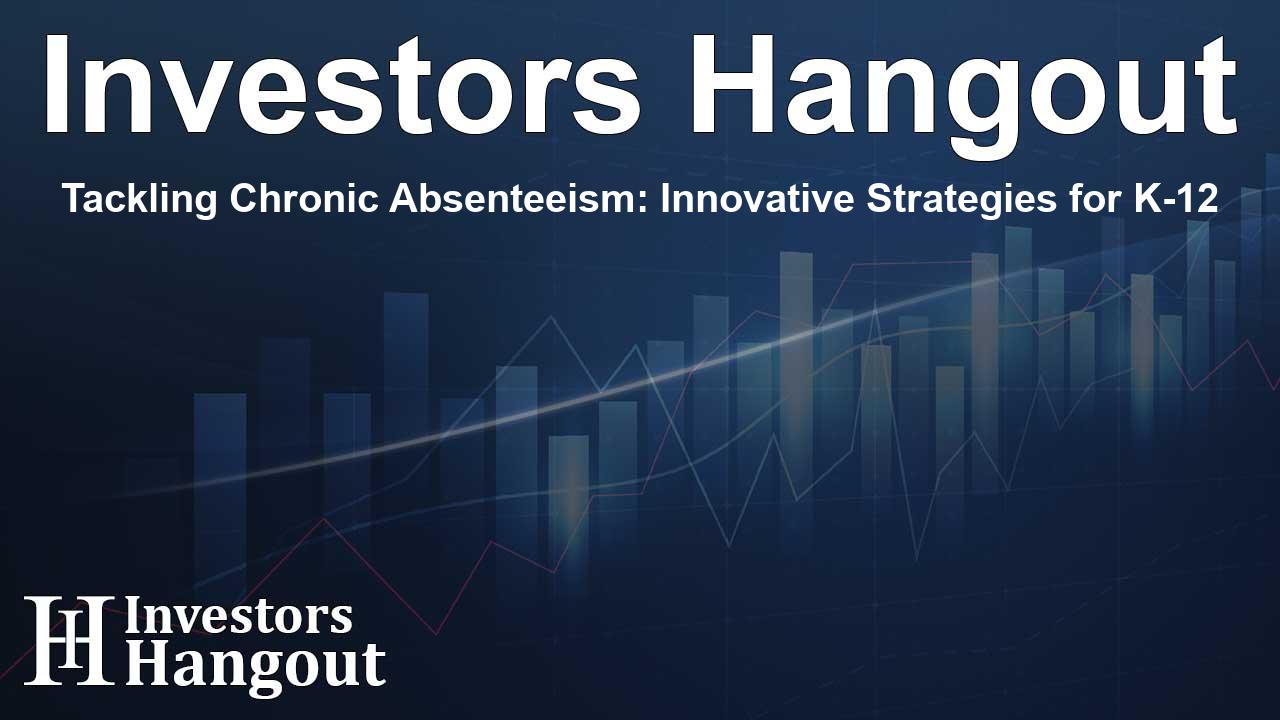Tackling Chronic Absenteeism: Innovative Strategies for K-12

New Toolkit Targets Chronic Absenteeism in Schools
A recent research study sheds light on effective messaging strategies that school leaders and educators can use to engage parents of chronically absent students, ultimately working to improve class attendance rates.
The Impact of COVID-19 on Student Attendance
In the aftermath of the pandemic, alarming statistics reveal that around 25% of students in U.S. schools have been classified as chronically absent, having missed at least two school days per month. To address this pressing issue, a study has been conducted to offer actionable strategies for school leaders, teachers, and community partners aimed at motivating families to ensure their children attend school more regularly.
The comprehensive study underscores that traditional messaging methods no longer resonate effectively with parents in this evolving educational landscape. Lina Eroh, a senior director at Overdeck Family Foundation, emphasized the necessity of revised communication strategies tailored to better align with parents' insights and concerns regarding in-person attendance.
Key Insights from the Study
The research by the Ad Council Research Institute (ACRI) involved a thorough analysis of over 5,000 parents to gauge their perspectives on school attendance. One notable finding is that negative messaging aimed at parents, emphasizing the consequences of absences, has proven ineffective in promoting attendance.
Instead, positive messaging that highlights the multifaceted benefits of consistent in-person attendance—such as emotional, social, and academic development—emerges as significantly more impactful. The toolkit developed alongside the study includes constructive messaging examples that schools can implement.
Understanding Parental Perceptions
The study also revealed several meaningful insights about parents' views on education:
- Parents recognize and appreciate the benefits of attending school in-person, such as social engagement and personalized learning experiences.
- In their perspective, academic success is one component of their child's overall development, encompassing social interactions and emotional well-being.
- Many parents keep track of their children's school performance, yet they tend to justify routine absences as acceptable.
- Trust in teachers plays a significant role; parents prefer receiving attendance messages directly from their child's educators.
The Role of Effective Communication
Derrick Feldmann, the lead researcher, pointed out the necessity of a holistic approach in educating families about the benefits of regular school attendance. By shifting the focus from academic distress to the overall development a child experiences in school, educators can more effectively engage parents.
Moving Forward: New Strategies for the 2024-25 School Year
As the new school year kicks off, the toolkit provides vital insights needed to enhance parental awareness and modify attendance-related behaviors. The updated messaging structure complements existing initiatives aimed at combating absenteeism, ranging from early warning strategies to proactive communication efforts directed at parents.
Hedy Chang, founder of Attendance Works, emphasized that addressing chronic absenteeism is critical. The research aligns with the real-world experiences shared by educators, underscoring the importance of discussing the broad array of advantages students gain when they attend school regularly.
Local Efforts in Improving Attendance
Educational leaders emphasize the significance of prioritizing school attendance as foundational to student success. Notably, initiatives in various jurisdictions, such as Rhode Island's #AttendanceMattersRI campaign, have contributed to a notable decline in chronic absenteeism. Rhode Island's education commissioner praised the new resources developed by the Ad Council as vital tools for educators across the country.
Upcoming Virtual Event
To accompany the toolkit launch, a live webinar is set to offer an in-depth review of the research and feature discussions led by experts in the field. Attendees will have the chance to delve into findings and share effective practices aimed at fostering positive attendance among students. This event marks a significant opportunity for educators and community leaders to gather insights and strategies for enhancing school attendance.
Frequently Asked Questions
What is the goal of the new toolkit?
The toolkit aims to provide school leaders and educators with effective messaging strategies to engage parents and improve student attendance.
How has absenteeism changed since the COVID-19 pandemic?
Chronic absenteeism rates have significantly increased, with approximately one in four students classified as chronically absent in the U.S.
What messaging strategies are deemed more effective?
Positive messaging that highlights the benefits of in-person attendance, such as socialization and emotional growth, is more effective than negative consequences.
How can parents track their children's attendance?
Parents can monitor their children's grades and school performance to recognize patterns in attendance and address any issues proactively.
Is there a virtual event associated with the toolkit?
Yes, a live webinar will be held featuring in-depth research review and expert discussions on improving student attendance.
About Investors Hangout
Investors Hangout is a leading online stock forum for financial discussion and learning, offering a wide range of free tools and resources. It draws in traders of all levels, who exchange market knowledge, investigate trading tactics, and keep an eye on industry developments in real time. Featuring financial articles, stock message boards, quotes, charts, company profiles, and live news updates. Through cooperative learning and a wealth of informational resources, it helps users from novices creating their first portfolios to experts honing their techniques. Join Investors Hangout today: https://investorshangout.com/
Disclaimer: The content of this article is solely for general informational purposes only; it does not represent legal, financial, or investment advice. Investors Hangout does not offer financial advice; the author is not a licensed financial advisor. Consult a qualified advisor before making any financial or investment decisions based on this article. The author's interpretation of publicly available data shapes the opinions presented here; as a result, they should not be taken as advice to purchase, sell, or hold any securities mentioned or any other investments. The author does not guarantee the accuracy, completeness, or timeliness of any material, providing it "as is." Information and market conditions may change; past performance is not indicative of future outcomes. If any of the material offered here is inaccurate, please contact us for corrections.